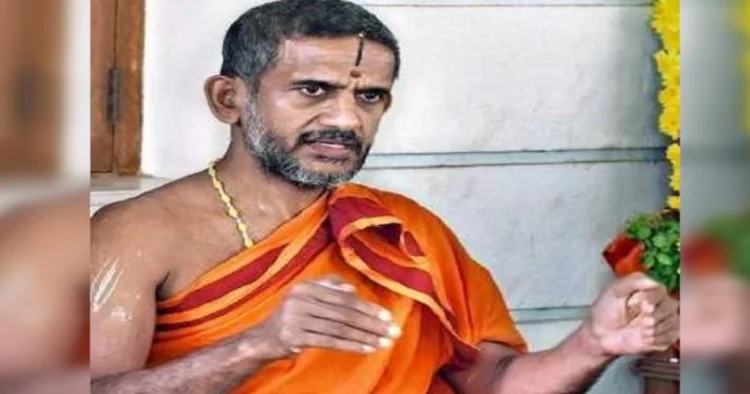As the auspicious consecration ceremony at the Ram Mandir in Ayodhya approaches, Swami Vishwaprasanna Tirtha, a revered member of the temple trust, has issued a heartfelt appeal to the Hindu community. He has urged parents to look to the profound reservoir of Hindu texts, such as the Vedas, Puranas, Ramayana, and Mahabharata, for inspiration when naming their children. This call to connect with ancient scriptures is not merely an effort to preserve cultural heritage but also to instil a profound sense of identity and belonging in the younger generation.
While the fulfilment of the longstanding dream of the Ram Mandir is a cause for celebration, Swami Vishwaprasanna Tirtha is quick to remind the community that the responsibility does not conclude with the temple’s establishment. He emphasises the need for foresight, encouraging contemplation on how to ensure the temple’s longevity and protect it from potential harm. Drawing a stark comparison with the destruction of Buddha statues in Afghanistan, he cautions, “Till the time our children remain Hindus and the Hindus exist as the majority, the temple will exist as a temple.”
Beyond the physical structure, Swami Vishwaprasanna Tirtha asserts that the greater challenge lies in preserving the temple’s sanctity. He stresses the importance of imparting values rooted in Hindu Dharma and Sanatan Dharma to the coming generations. “We are not going to live forever. We have to impart values of Hindu Dharma and Sanatana Dharma in our children. By imparting ‘sanskriti (culture)’ in our ‘santati (children),’ we will be able to preserve it,” the seer affirms, underlining the significance of cultural continuity.
In response to inquiries about the consecration ceremony, Swami Vishwaprasanna Tirtha acknowledges the legal battle that ultimately secured a favourable judgement from the Supreme Court. Expressing gratitude for those who respect the Constitution and uphold the judiciary’s decisions, he highlights the broader acceptance of the temple’s establishment.
The suggestion to choose names from the Vedas, Puranas, and other revered texts reflects Swami Vishwaprasanna Tirtha’s belief in drawing from the timeless wisdom embedded in these scriptures. The Vedas, comprising the Rig Veda, Yajur Veda, Sama Veda, and Atharva Veda, along with their accompanying texts—the Brahmanas, Aranyakas, and Upanishads—serve as foundational scriptures of Hinduism. The shastras, encompassing Vedangas, Puranas, Meemansa, Nyaya, Dharma Shastras, Ayurveda, Dhanurveda, Gandharva Veda, and Arthashastra, offer an extensive array of meaningful and culturally rich names.
For those seeking inspiration, Swami Vishwaprasanna Tirtha provides examples such as Aashman (Son of the sun), Akshar (Eternal god), Abhimanyu (The son of Bhagwan Arjun; great warrior), and Amrit (Immortal). The name Divya, meaning ‘radiance’ or ‘divine brilliance,’ is suggested as a versatile choice suitable for both boys and girls, offering a glimpse into the depth and versatility of Hindu nomenclature.
As the consecration ceremony approaches, Swami Vishwaprasanna Tirtha’s appeal echoes as a profound call to preserve cultural roots, passing on the legacy of Hindu values to future generations. In an ever-changing world, his message resonates as a reminder of the timeless wisdom embedded in ancient scriptures, urging the community to draw strength from its cultural heritage.




















Comments